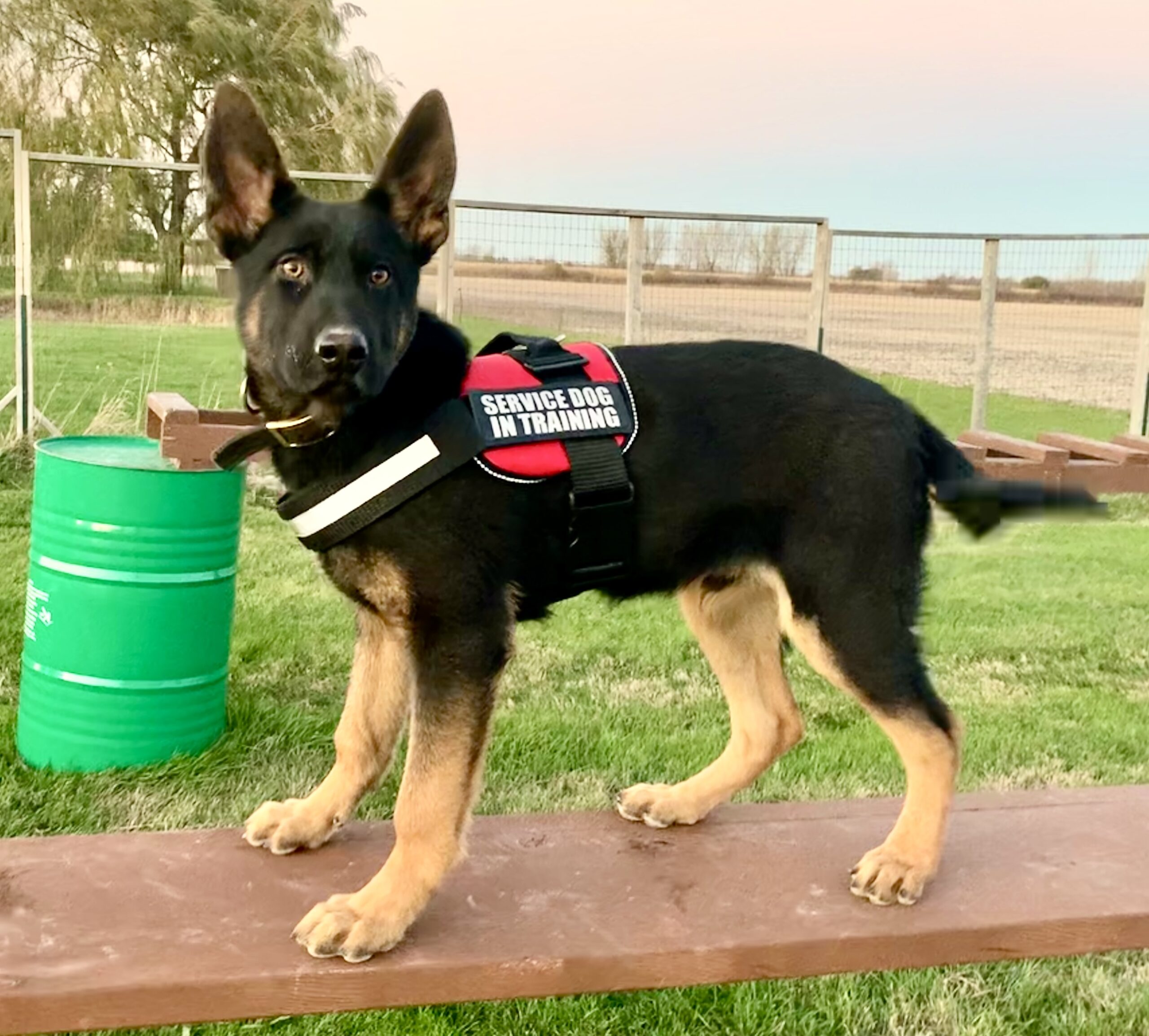Service dogs provide incredible benefits for individuals living with disabilities. These trained animals provide companionship and support. They help their handlers with different tasks, making life easier and more enjoyable. For people facing issues like anxiety, blood sugar problems, or PTSD, a dog can be a life-changing friend.
Assistance with Daily Activities
One main benefit of having a service dog is their help with daily tasks. For someone with a disability, routine activities can feel too much.
A dog can ease this burden by doing specific tasks for their handler. For example, these dogs can open doors, pick up dropped items like keys or phones, and offer support when someone feels unsteady. Having a dog helps people move around more independently.
Support During Crisis Moments
Moreover, service dogs offer vital support during moments of crisis, such as anxiety attacks. These dogs can sense their handler’s distress and respond accordingly. Their natural ability to sense changes in mood and behavior allows them to offer comfort when it is needed.
For someone with post traumatic stress disorder PTSD, mobility assistant, a service dog can help manage sudden anxiety attacks. They can guide their handler to a safe space or provide tactile support, like nuzzling or licking, to help them feel grounded in reality.
Training and Suitable Breeds
In the realm of training service dogs, certain breeds are especially well-suited for the task. Breeds like Golden Retrievers, Labrador Retrievers, German Shepherds, Belgian Malinois, Cocker Spaniels, and Springer Spaniels are frequently chosen for their intelligence, temperament, and eagerness to work. These breeds possess qualities that make them adaptable, obedient, and eager to please—a perfect combination for service tasks. Training a service dog requires a dedicated approach, involving both obedience training and specialized instruction for particular tasks related to their handler’s disability.
The Costs of Obtaining a Service Dog
It is important to note that the cost of obtaining a well-trained service dog can be significant. Potential owners should be prepared for an investment typically ranging between $45,000 and $85,000. This expense reflects the rigorous training and the time commitment necessary to prepare these dogs for their demanding roles.
Investing in a dog can be an important choice. These animals offer companionship and help improve the quality of life for people with disabilities.
Emotional Support and Companionship
The role of service dogs extends beyond just physical tasks; they also provide emotional support. Living with a disability can lead to feelings of isolation or loneliness. The connection established between a service dog and its handler can ease these emotions by offering companionship and emotional support.
Service dogs help their handlers feel safer. This reduces the stress and anxiety that often come with having a disability.
Medical Alert Capabilities
Furthermore, service dogs can play an essential role in medical alert situations, particularly for individuals managing conditions like diabetes. Trainers specifically train certain service dogs to detect changes in blood sugar levels. They can alert their handlers when their blood sugar is too high or too low, allowing for quick intervention. This capability can be life-saving, as it allows individuals to manage their health effectively and avoid potential emergencies.
Facilitating Social Interactions
Service dogs offer both physical and emotional support. They can also help people connect socially.
For people with disabilities, social situations can be hard. A service dog can help them interact with others more easily.
A well-trained service dog often draws attention and can start conversations. This helps individuals meet new people and build relationships..
A Unique Support System
Understanding that while service dogs provide extensive assistance, they are not a cure-all is also essential. Individuals with disabilities often require a comprehensive support system that includes medical care, therapy, and community support. A service dog can greatly improve this support network. They offer a special kind of help that is hard to replace.
In summary, service dogs perform tasks and provide extraordinary advantages for people with disabilities act ada, especially those dealing with anxiety, blood sugar regulation, or PTSD. These animals perform important jobs that make daily tasks easier. They also provide emotional support and build strong bonds with their handlers.
Although acquiring a service dog can be costly, their positive influence on life quality is immense. With their distinct abilities, service dogs are invaluable allies that boost independence, safety, and social interaction for individuals with disabilities.
If you or someone you know could use a service dog, it is important to look for trusted organizations. These groups focus on training these amazing animals. Ultimately, the right service dog can significantly transform a person’s life, making daily experiences more manageable and rewarding.












